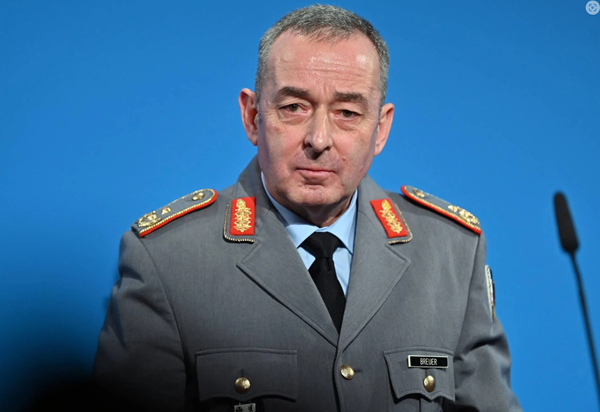Bundeswehr Inspector General: Germany must prepare for potential conflict within five years
Germany should be ready for a conflict with Russia within five years, according to Lt. Gen. Carsten Breuer, the Inspector General of the German Armed Forces (Bundeswehr). In an interview with the newspaper Welt am Sonntag, he asserted that enhancing combat readiness to wartime levels entails not only personnel readiness and material provision but also a necessary shift in the mindset of both society at large and the German military.
With the Russian war against Ukraine, Breuer noted that the European Union faces the threat of external conflict for the first time since the end of the Cold War. By examining analyst reports and Russia’s military capabilities, Breuer pointed out that Germany faces a five-to-eight-year preparation period, though this does not guarantee war will occur.
He also alluded to actions by Russian President Vladimir Putin suggesting an intention to extend the war beyond Ukraine. Breuer inferred these intentions from Putin's rhetoric and writings, as well as developments on the ground in Ukraine, including Russia’s shift to a war economy by a state Duma decision.
The Bundeswehr's Inspector General branded the fighting in Ukraine a “terrible war of aggression with significant losses on both sides,” and severely criticized Putin's method of deploying his soldiers. Breuer sees signs of a war of attrition, with further developments heavily dependent on the Kremlin’s ongoing support and reinforcement to the front lines.
Addressing critics who accuse the West of only providing Ukraine with enough arms to prolong the war rather than win it, Breuer countered, stating he saw no intentional limitations on aid. Germany's support is only constrained by what it has and can produce and deliver to Ukraine, he noted.
Furthermore, Breuer considered the permanent stationing of a Bundeswehr brigade in neighboring Lithuania as sending multiple important messages. To Moscow, it communicates serious resolve and NATO solidarity. To Vilnius, it offers reassurance of unwavering support. To German citizens, it's about reciprocating the defense assistance received during the Cold War – a contribution now called upon to protect not only others but also to underpin the country's economic development.
Highlighting defense commitments, Breuer stated that about 20 EU member countries plan to allocate 2% of their gross domestic product toward defense this year. He mentioned an acknowledgment within Europe of the need to establish a more self-sufficient defense system, less dependent on the United States.
